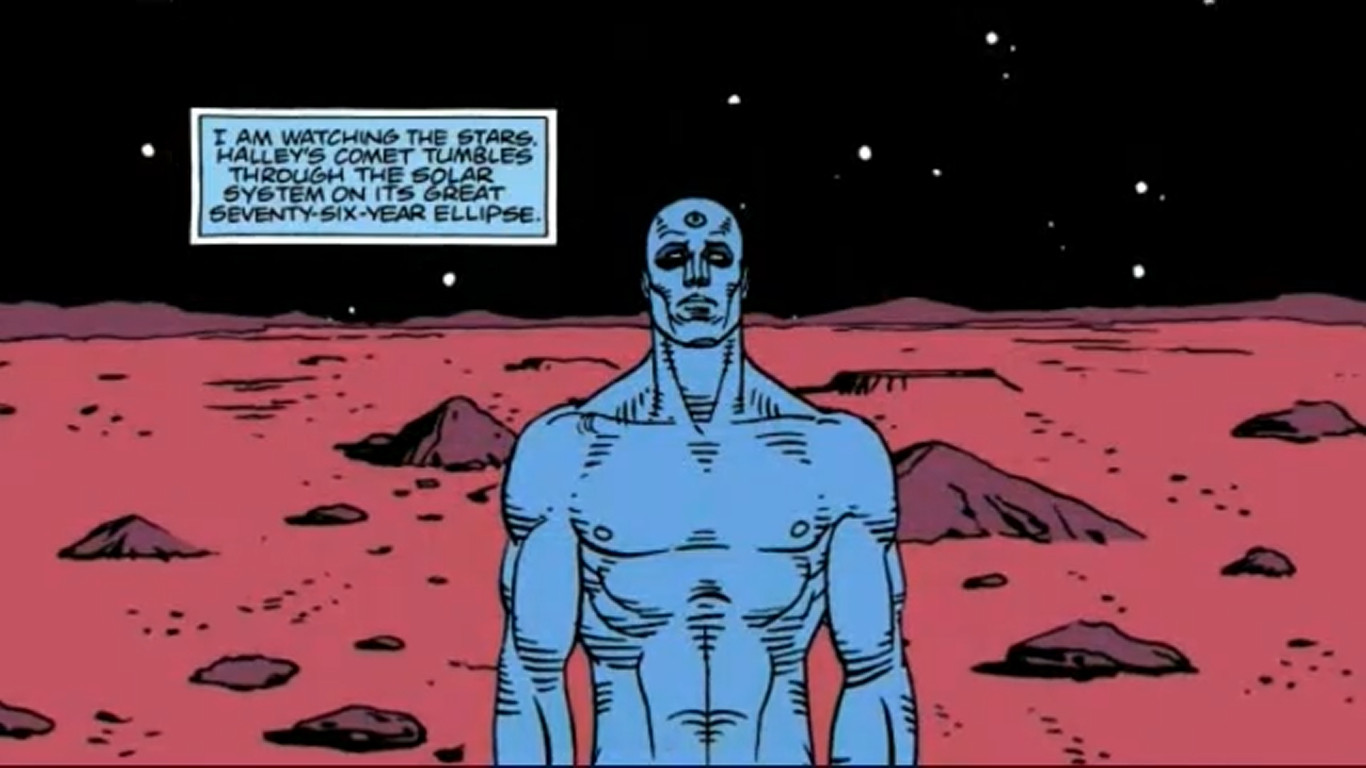Dr Manhattan doesn't perceive time as coexistent, he EXPERIENCES it as such.
 There are clues in the syntax Alan Moore uses to articulate Osterman when he is speaking in the first person: notice the tense.
There are clues in the syntax Alan Moore uses to articulate Osterman when he is speaking in the first person: notice the tense.
No matter where he is, he always expresses himself in the present tense: 'I am watching the stars', 'The Photograph IS in my hand', 'It IS 1985, I am on Mars'.
He never makes a statement using the past participle, because for him he is experiencing the past simultaneously as the future and as such it is all very much the present for him.
He's a deliberately obtuse creation, and that's why he's discussed so much, because he holds a position and standpoint outside of human experience and understanding.
He cannot travel through time, because he is IN and ACROSS time simultaneously. All moments occur simultaneously, and as such time has become an abstract construct for him, one in which the idea of a sequence of moments becomes meaningless.
This doesn't mean he can alter or change time; no more than his very personal history anyway. Whilst he can see what is about to happen as far into his own experience as possible (before tachyon interference, hence his distress that this foresight is impinged upon), he can do nothing to stop its steady march, its progress.
Hence his muted sorrow when Laurie decides to go to dinner with Dan. He knows it is the beginning of an affair that will separate them, but can do nothing to stop it because he has seen into the future and KNOWS that it happens, because he is already experiencing it.
He perceives the world as a 'Watchmaker' would, so to speak:
He knows that 4pm is coming, and nothing he can do will stop 4pm from arriving shortly after 3, and before 5, which is also just as certain to occur. He doesn't try and skip 4pm and move straight onto 5pm, because he knows that's not what happens.

 There are clues in the syntax Alan Moore uses to articulate Osterman when he is speaking in the first person: notice the tense.
There are clues in the syntax Alan Moore uses to articulate Osterman when he is speaking in the first person: notice the tense.